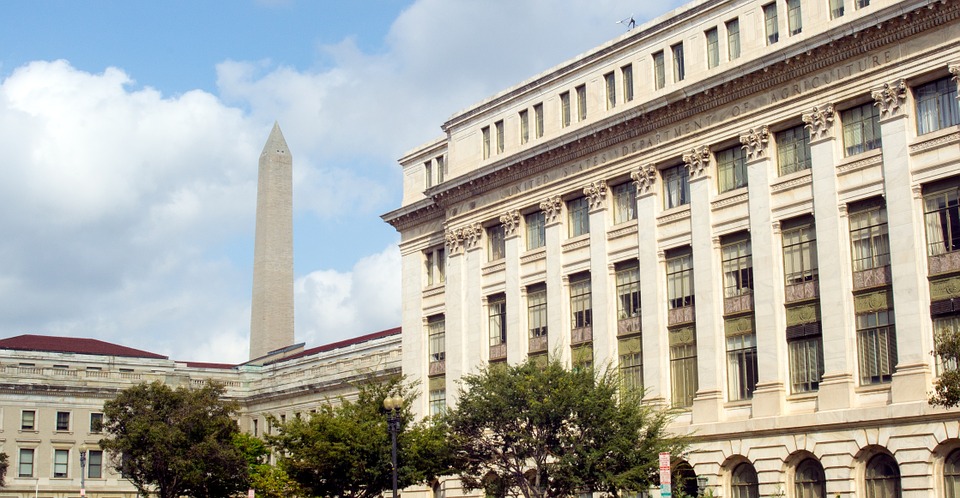By Dave Smith, Senior Contributor, USDR.
“The FDA exists to approve safe and effective treatments as quickly and efficiently as possible, but overcaution at the FDA is literally killing people.” – Mark Flatten
The US Food and Drug Administration (FDA) was formed in 1906, partly as a result of decades of legislation aimed at food hygiene, and partly as a knee-jerk reaction to the publishing of muckraker Upton Sinclair’s novel The Jungle that detailed food hygiene conditions in Chicago. Its charter covers food, electronic product radiation, tobacco products, and drugs and medical devices. The FDA’s purview is over $2.5 trillion in consumer products, and it is the FDA that approves new drugs for both human and veterinary use in the United States and its territories.
While the FDA’s budget was just over $5.1 billion in fiscal year 2018 (approximately 60% of which is covered by user fee taxes), it has a large impact on the economy, regulating over $2.5 trillion in products. In its role in approving new drugs, the FDA exhibits great control over the entire pharmaceutical industry, often demonized as “Big Pharma”.
The process for gaining FDA approval for a medication is long, arduous, and expensive – a study by the Tufts Center pegged the total cost at over $2.5 billion: approximately $1.4 billion in direct costs, and $1.4 billion in foregone investment returns. Another $300 million in post-approval research and development outlays add to the cost of a new drug, and the process can take a decade from development to approval, with the 20-year patent protection starting with human clinical trials, not the launch of the product.
In “Studied to Death: FDA Overcaution Brings Deadly Consequences”, the Goldwater Institute’s Mark Flatten details further costs and problems with the FDA approval process. In the study, Flatten claims that the “regulatory labyrinth” of the FDA bureaucracy provides an “end result [that] is more preventable deaths and more diseases that go untreated”, and he even cites an internal FDA report that concluded that the “FDA’s inability to keep up with scientific advances means that American lives are at risk”.
One problem with the system is that the increase in the number of clinical trials required has doubled and the number of patients per trial has tripled since 1980. The volume of trials, expense, and time requirement distort the type of drugs being developed: “one drug with a huge market is more commercially desirable than 25 drugs that each treat a less common disease” as a result. The cost of FDA approval results in a reluctance of companies to invest in research that would yield low-cost products.
It is commonly stated that if invented today, aspirin would not be approved by the FDA, and there is some evidence to bolster that claim: the benefits of aspirin in preventing heart attacks was known as far back as 1980, yet the FDA didn’t approve labeling of aspirin’s heart attack prevention until 1998, and even then it was only allowed to be advertised for prevention of a second heart attack. The US Preventative Services Task Force and the American Heart Association recommended aspirin to prevent a first heart attack in 2002; the FDA denied their application and denied aspirin makers the ability to market aspirin as a preventative for first heart attacks. Evidence that aspirin can also prevent colorectal cancer is also not marketable by aspirin manufacturers.
There has been some movement on the reform front. Earlier in 2018, President Trump signed the Right To Try Act, a federal version of a law already in place in 38 states. The new law allows terminally ill patients who have exhausted FDA-approved treatment options to access treatments that have not yet been granted FDA final approval but that are working through the process. Senators Mike Lee and Ted Cruz have proposed legislation called the RESULT Act that establishes a reciprocity agreement, whereby treatments that are authorized by the regulatory bodies in the European Union, Japan, Canada, Australia, or Israel would not need further FDA approvals in the United States. Arizona passed a Free Speech in Medicine law that allows drug companies to discuss alternative applications of FDA-approved prescription drugs, known as “off-label” treatment – a discussion that is currently illegal.
Implementation of these and other free market reforms could go a long way towards making the process of legalizing medical treatments quicker and less expensive, and ultimately save lives by providing more plentiful and cost-effective drugs.
Born in the same county as Davy Crockett in East Tennessee, Dave found his way to Texas where he works in the petrochemical industry. He’s written and spoken about politics on various media outlets including Fox, ABC, and Townhall. He is a graduate of Tennessee Tech with a degree in chemical engineering. Make sure to check out Dave’s popular series, “Profiles in Liberty” at USA Daily Chronicles. Follow Dave on Twitter: @semperlibertas.


